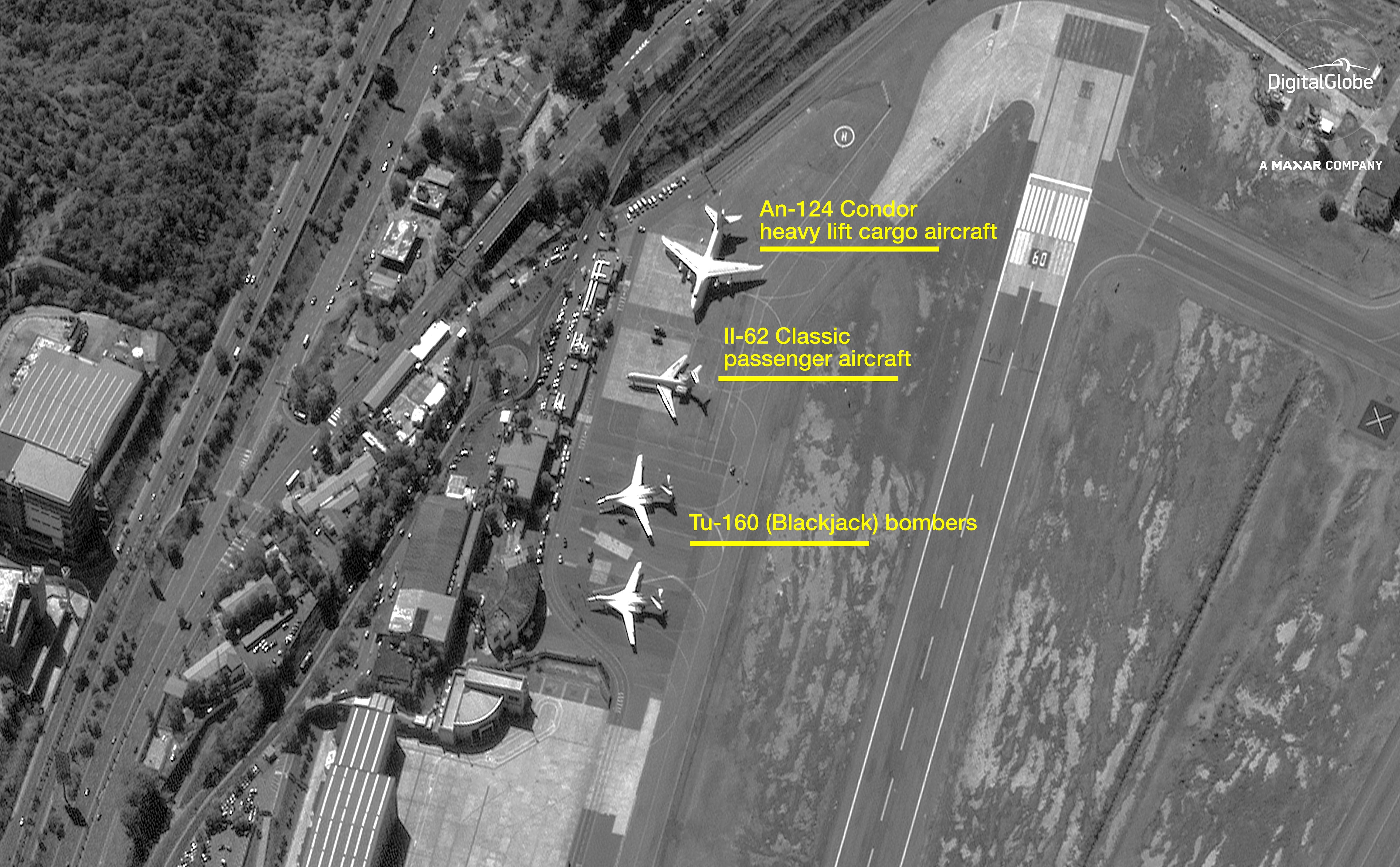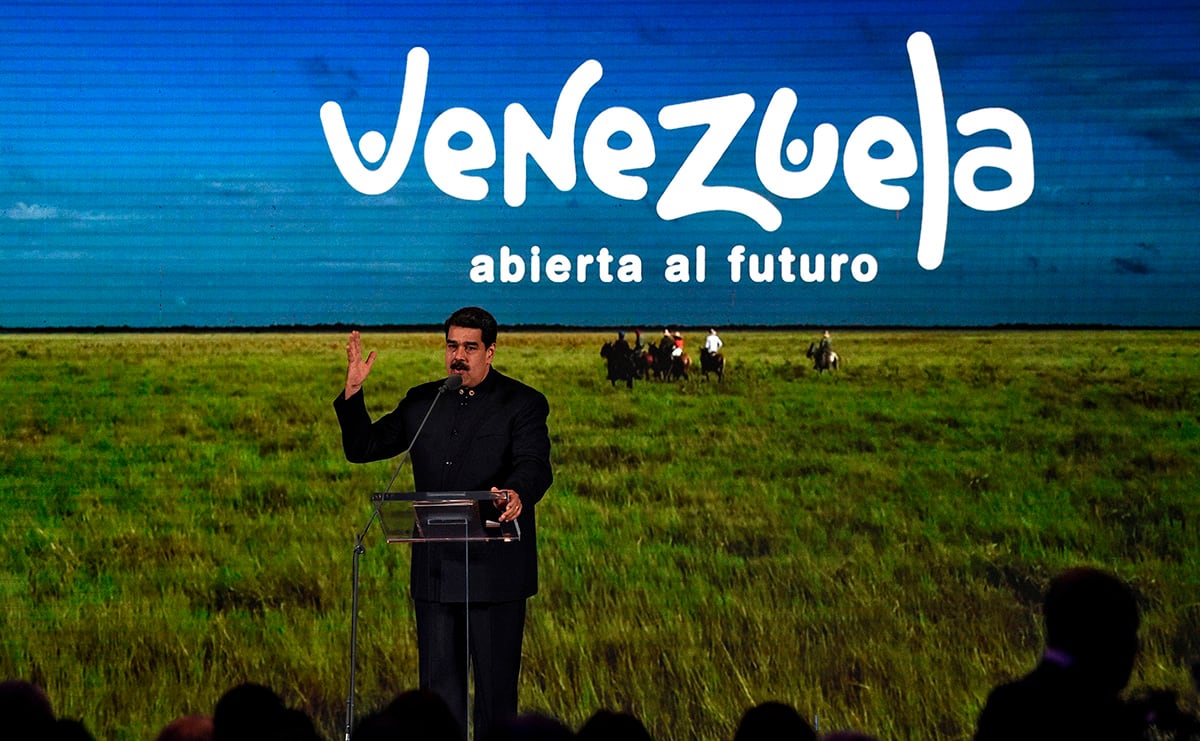WASHINGTON — The crisis in Venezuela has been thrust to the top of a list of long-simmering spats between the United States and Russia, with both sides entrenched in diametrically opposed positions from which they are unwilling to retreat.
Russia’s support for embattled Venezuelan President Nicolas Maduro, who is refusing to cede power to U.S.-backed opposition leader Juan Guaido, is just the latest of issues that have split Washington and Moscow. The dispute comes as relations between the Cold War foes have already been riven by Russia’s meddling in the 2016 U.S. presidential election, its military intervention on behalf of Syrian President Bashar Assad, its 2014 annexation of Crimea and continued backing of separatists in eastern Ukraine.
And, even as President Donald Trump seeks better ties with Russia's President Vladimir Putin, his subordinates are stepping up criticism of Russia on these issues with a recent particular focus on Venezuela.
RELATED

Russia and Venezuela have a political, military and economic alliance that was cemented between Putin and the late President Hugo Chavez. The Russians have provided the South American nation with substantial assistance, including an air defense system and help circumventing U.S. sanctions on their oil industry, but insist the extent of their support has been exaggerated by American officials.
Since the beginning of the week, Secretary of State Mike Pompeo and national security adviser John Bolton have repeatedly denounced Russia, along with Cuba, for aiding Maduro, whose re-election last year is viewed by the U.S. and more than 50 other nations as illegitimate because of fraud.
On Tuesday, Pompeo said Maduro had been prepared to flee Venezuela but that Russia had convinced him not to leave. A day later, he and Russian Foreign Minister Sergey Lavrov had a contentious telephone conversation in which each accused the other of destabilizing Venezuela and demanded an end to the other's interference in the country.
As the dispute intensifies, Pompeo plans to meet with Lavrov to resume their as-yet unproductive discussions on Venezuela. They will be in Rovaniemi, Finland, for a meeting of foreign ministers from the eight members of the Arctic Council.
A senior State Department official said Pompeo would use the opportunity to express U.S. "concerns about Russian behavior."
"That includes Ukraine and certainly Venezuela," said the official, who was not authorized to discuss the meeting publicly and spoke on condition of anonymity.
Earlier Thursday, Lavrov described their phone call as having "surreal" elements and denied Pompeo's allegation about Russia convincing Maduro to stay in Venezuela.
"Pompeo phoned, called for us to refuse to support Maduro, called for Cuba and us not to interfere in the internal affairs of Venezuela," Lavrov told reporters in Uzbekistan's capital, Tashkent. "The whole story sounds quite surreal. If you count up all that official representatives of the American administration say about Venezuela, then you can pose questions endlessly and to all these questions the answer will be, to put it diplomatically: it's untrue."
The State Department and Russia's Foreign Ministry had already put out dramatically different accounts of Wednesday's phone call.
RELATED

The Russian statement said Guaido had attempted to seize power with "the clear support of the United States" and that the U.S. threat to Maduro was "a gross violation of international law." It added that Lavrov had warned Pompeo that "the continuation of aggressive steps is fraught with the most serious consequences."
Shortly thereafter, State Department spokeswoman Morgan Ortagus released a statement saying Pompeo in the call had "stressed that the intervention by Russia and Cuba is destabilizing for Venezuela and for the U.S.-Russia bilateral relationship."
Pompeo "urged Russia to cease support for Nicolas Maduro and join other nations, including the overwhelming majority of countries in the Western Hemisphere, who seek a better future for the Venezuelan people."
Neither statement made mention of next week’s meeting in Finland, which will take place on the first stop of a four-nation European tour for Pompeo. After Finland, Pompeo travels to Germany, Britain and Greenland before returning home.









